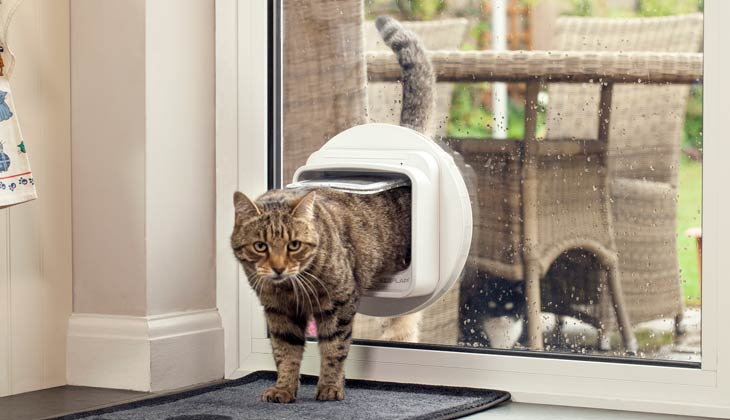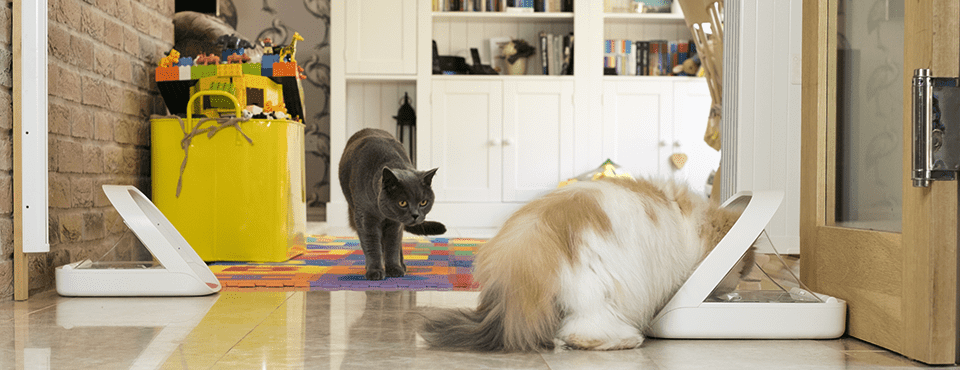Pet Health Intelligence – Your Pet’s Activity and Behaviour
HEALTH & PROTECTION
28 Nov, 2022
READ 4 minutes

Technology has become an integral part of society – it’s almost hard to imagine life without it!
In the pet world, technology is also becoming increasingly popular, with gadgets that promise to keep our dogs and cats trim, healthy and occupied – and giving us opportunities to understand them better. There are a growing number of state-of-the-art tools and devices available that can help us understand and track our pets’ activity and behaviour so that we can continue to better the lives of our beloved dogs and cats.
Pet Wearables
Many devices that started out as human tech, such as activity trackers, have made the transition to the pet market. These trackers clip onto your dog’s collar and log information, such as activity levels, sleep duration, and calories burned, through a smart phone app. An app also alerts pet owners to significant changes in behaviour, such as excessive barking, scratching and shaking. Giving you a real window into your dog’s daily habits, these devices also allow you to share information with your veterinarian, which can really come in handy if there is a health issue.

Smart Pet Doors
Smart or “connected” pet doors have several benefits. Working with your pet’s existing identification microchip or an RFID collar tag, these doors will only open when an authorized pet’s chip or collar tag is read. Otherwise, the door stays locked, which has the added benefit of preventing unwanted intruders using the door, such as rodents or neighbourhood cats. Smart pet doors also provide remote and manual locking features as well as connectivity to a mobile app which lets you keep track of your dog or cat’s comings and goings.

High-tech pet crates and beds
If you have an anxious dog that needs soothing when you’re away, this technology may provide a solution. These smart crates and beds are designed to relieve your dog’s stress with motion-sensor activated fans and a playlist of calming music that turns on when your beloved canine enters the crate or bed.
Smart pet toys
Playtime for your pet provides both exercise and mental stimulation. Technology can help fill in the gaps and help keep your pet entertained when you’re not available or when your dog or cat is home alone. These toys entertain your pet, keeping him or her stimulated, content and helping to control feelings of loneliness or boredom, which can lead to inappropriate behaviour. These toys are activated by movement and touch, which makes them bounce, shake or roll on their own. This gives pets the fun, interactive exercise they crave.

Pet Cameras
While we never want to leave our pets at home alone for extended periods, being out and leaving your pet home can be very worrisome for pet owners, especially if you have a sick or anxious pet. Pet cameras are a great option for keeping an eye on your four-legged friend while you’re out, whether it’s for keeping track of behaviour or simply for peace of mind. Various cameras offer a range of features, including two-way speakers, treat dispensers and audio alerts.
There are other innovative products that help give us a look inside our pets’ genetic history, such as DNA screening kits, and other aspects of feline behaviour and smart litter boxes. Technology is continuing to advance and change the world as we know it including the lives of our beloved pets. Of course, this will only be enhanced as technology continues to evolve. The various technologies mentioned above just begin to scratch the surface of the expanding world of pet health intelligence. It will certainly be fascinating to see what new advancements come next!
ZA-NON-220700006
RECOMMENDED
RELATED POSTS
-

Learn about canine babesiosis, a tick-borne disease that affects dogs worldwide. Discover its symptoms, treatments, and how to prevent it.
-

Explore how diabetes impacts cats, its signs, risk factors, and effective management through medication and diet for a healthier feline life.
-

Diabetes affects an estimated 1 in 300 dogs, diabetes is more common in middle-aged and older dogs (4-14 years of age), it can be diagnosed in dogs of any age, including young dogs. Read more.
-

Ever wonder how your dog experiences the world? Why he or she sniffs everything, everywhere? Read more and find out






